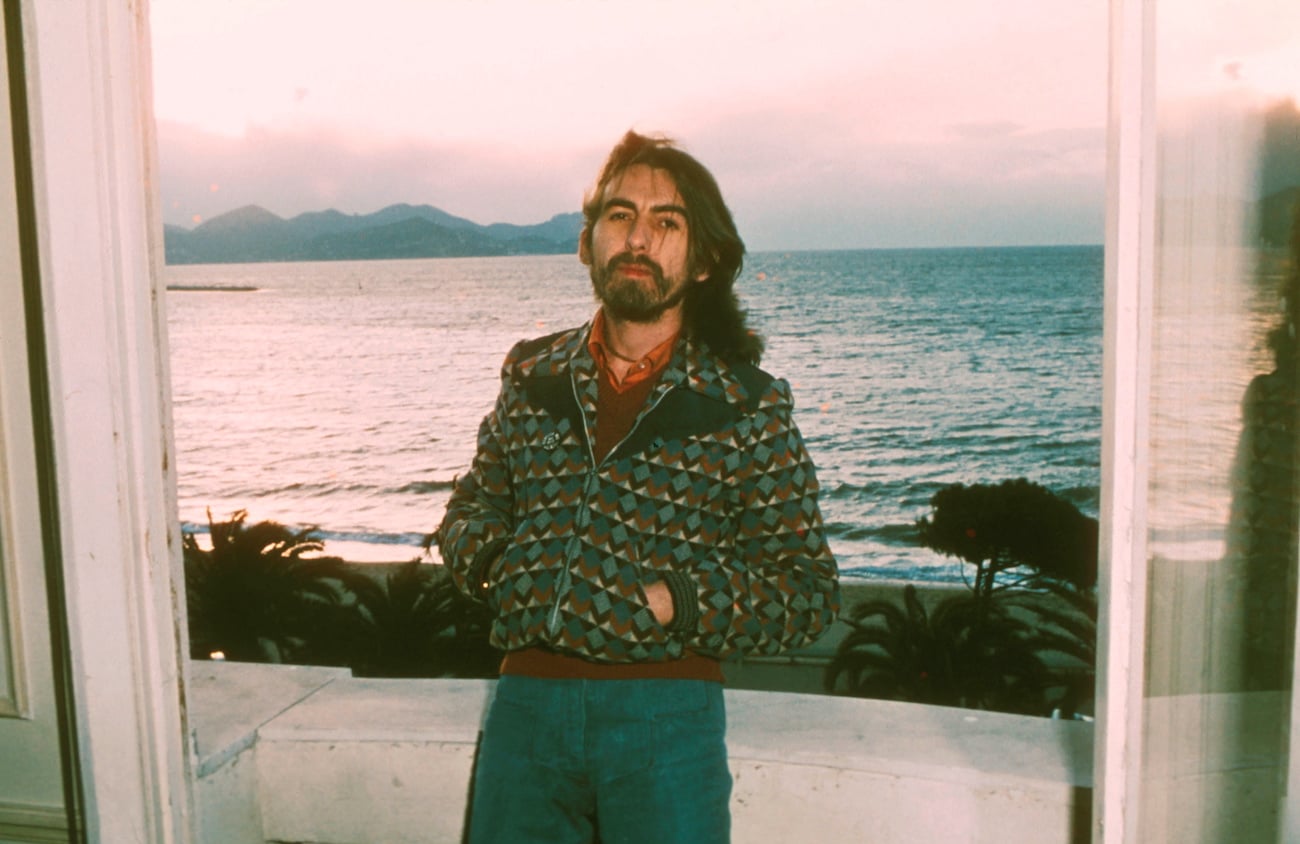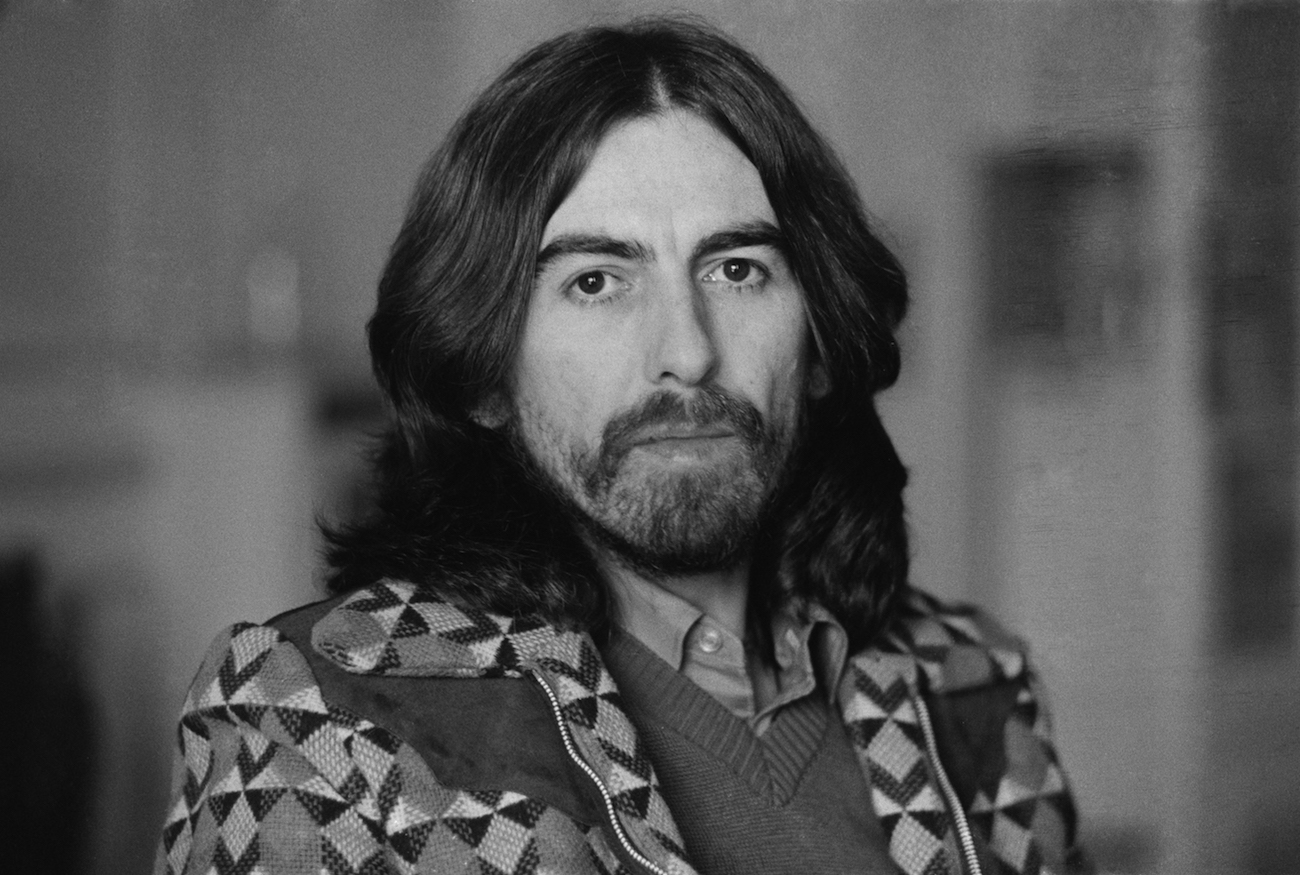
George Harrison Said the 1970s Destroyed Most of the Innovative People of the 1960s
George Harrison believed the 1970s destroyed most of the innovative people of the 1960s. He’d come out of the 1960s “shell-shocked” from his time with The Beatles. However, he recognized that the decade brought a cultural revolution and many great things. Then, there was nothing left in the 1970s.

The Beatles were ‘shell-shocked’ from the 1960s
Being a Beatle wasn’t always easy. Once Beatlemania started, the Fab Four had a hard time getting to places without being mobbed by hoards of fans. Touring was exhausting; George and The Beatles experienced unimaginable things over a short amount of time.
During an interview with Creem Magazine, George said the years that followed The Beatles were challenging because they were all “shell-shocked” from the 1960s.
In 1979, George told Rolling Stone, “The Beatles fortunately did that hit-and-run. But every year we were Beatling was like twenty years; so although it might only have been five or six years, it seemed like eternity. That was enough for me, I don’t have any desire to do all that.
“It might have been fun for everybody else, but we never saw the Beatles… We were just four relatively sane people in the middle of madness. People used us as an excuse to trip out, and we were the victims of that.
“I mean, a lot of the time it was fantastic, but when it really got into the mania it was a question of either stop or end up dead… It was aging me.”
In 1988, George added to Film Comment, “On behalf of all the remaining ex-Beatles, I can say that the fact that we do have some brain cells left and a sense of humor is quite remarkable. I’ve had my ups and downs over the years, and now I’ve sort of leveled out. I’m feeling good. I don’t get too carried away or too down about anything.”
George thought the 1960s were bad, but the 1970s turned out to be worse.
George Harrison said the 1970s destroyed the innovative people of the 1960s
Into the 1970s, George’s life didn’t settle down. He recorded his triple album, All Things Must Pass, as a reaction to leaving The Beatles. Then, he organized the Concert for Bangladesh in 1971. By early 1974 his wife, Pattie Boyd, left him for Eric Clapton.
Months later, George embarked on his first and only solo tour of America, his Dark Horse tour. It was doomed before it started. George had laryngitis, started each show with long performances from Indian musicians, spouted religious chants, and initially denied fans what they came for: Beatles songs.
However, George thought having other artists from different genres made the tour interesting, which was something performances in the 1970s lacked.
“The whole idea of having such a whole different bunch of people, and different attitudes, and different types of music, and just a broader type of show was because it’s boring just going on and on and on, pretending that we’re all happy,” George told David Herman at WNEW-FM in 1975.
George explained that the record business had become so huge that it left no room for creativity. He said, “I don’t like to just become part of something which is like Monday, Tuesday, Wednesday, Thursday something which just is repetitious. And suddenly we find we’re all old and we’re all dying and what did we do? We just got caught in a rut.”
Herman asked, “Don’t you think what happened in those late ’60s, that great feeling of optimism did, in one way, light the world and change consciousness and raise awareness in a subtle way that the world will never be the same again?”
George replied, “Definitely, definitely. And that’s the thing. Maybe the thing that disappointed me was there might have been a million people who showed signs of being that, and now in the 70s, out of the million, there may only be a hundred left. The thing that’s sad is what happened to the other 990,000?”
George said artists in the 1970s had to go inside themselves more
During his interview with Herman, George Harrison added that many artists of the 1970s had to go inside themselves.
“I find now, like the ’70s seems to … there’s a lot of people who are just forced into being so much more individual,” he said. “And that’s where I’d put me, and people like Eric Clapton. But there’s a lot of us from the ’60s, who came up in the ’60s, and there I put John Lennon there as well, you know. Like Walls and Bridges, that album, in particular, where we were the people who came up through … we battled our way up through the ’60s and became something.
“And then in the ’70s, there’s a whole multitude of other people who are just battling their way through and being really successful and all that. But that situation has forced all of us into more … going inside ourselves more. You know? It’s like say that this new album of mine, all I want is to be able to sing the tunes I have, and to do them as warm and as simple as possible.
“That’s really … and I think by that in itself, again, it puts you into that position of … I don’t see my music anymore as being Top 20, somehow. I just played you one track before….”
George didn’t like how the music business changed from the late 1970s into the early 1980s. He made music when he wanted and didn’t take any part of it seriously.


